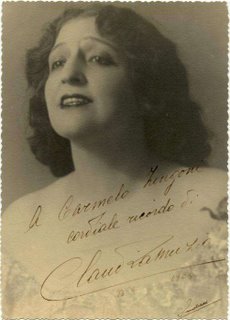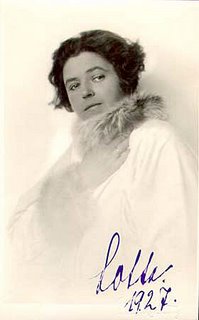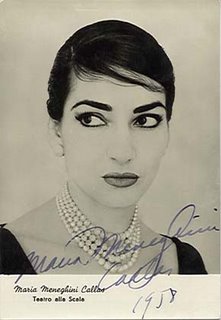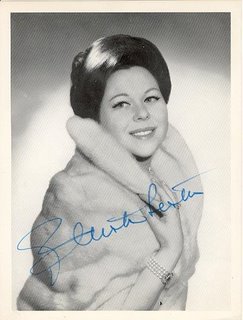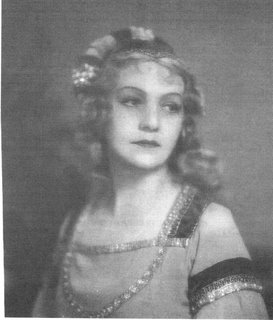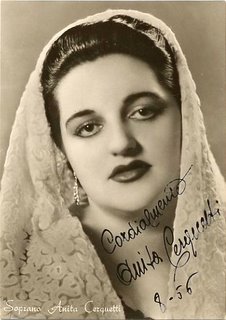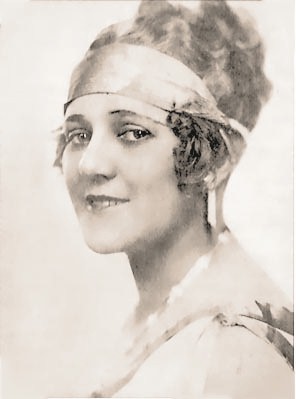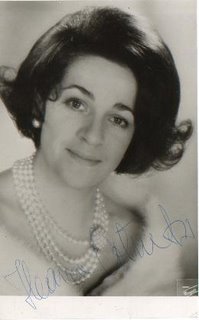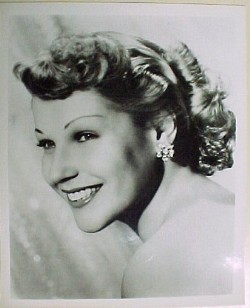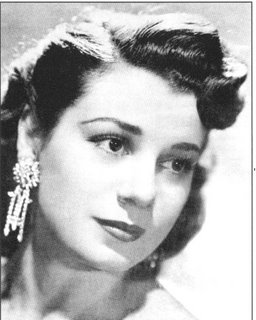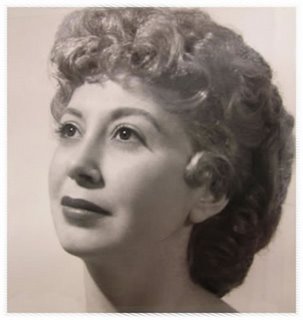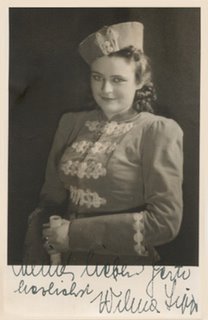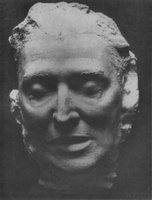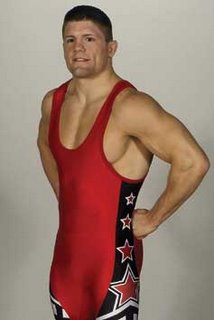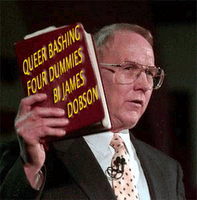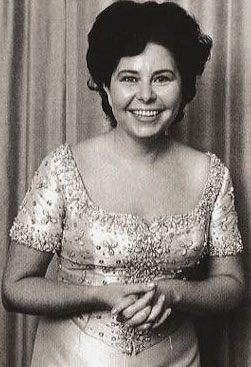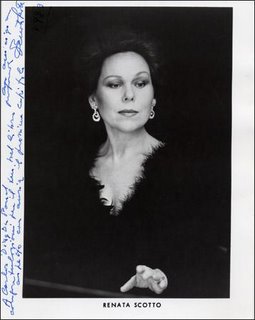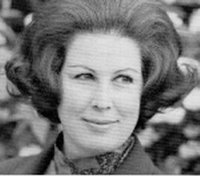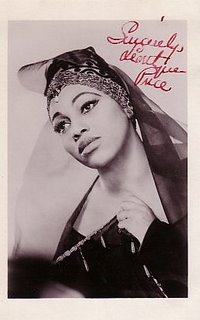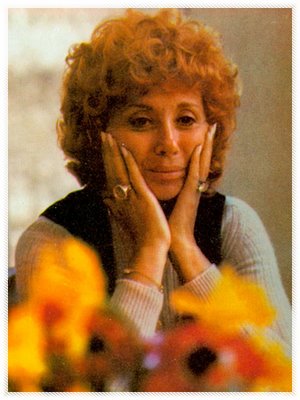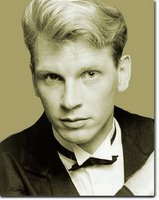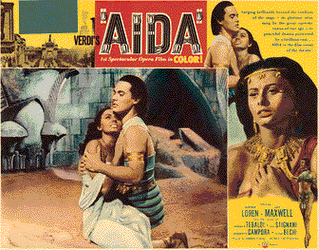
A bit of advice is given to young artists of any stripe: if you can do anything with your life other than be an artist, for God’s sake, DO IT! If you can’t live without pursuing your art, then the choice is made for you, but otherwise... Music chose me; I didn’t have that much to say about it. Apollo or one of those damn muses must have deposited me from some distant planet into the middle of a typically dysfunctional family that happened to live in Wisconsin. Nothing was out of the ordinary in this family except for the religious zeal that formed the basis of our existence. My father was a minister in the Lutheran Church Missouri Synod, one of the most conservative factions of any branch of Christianity. In our family, whether one embraced the hand of Jesus or pushed it away (which was something one could only do in secret), the motivating force of either action was the same.
And yet I somehow existed on a different plane, and all thanks to Sophia Loren. Early in the days when my parents were dating, they went to the drive-in to see
Aida. This hybrid Italian production featured a young Sophia Loren as Aida singing with the voice of Renata Tebaldi. Though neither of my parents had the slightest interest in opera (but rather in fact, a mild aversion to it), the film nonetheless played some kind of significant role in their courtship.
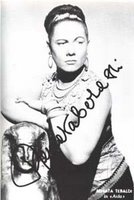
For their first Christmas as a married couple, my father bought my mother an edition of
The Victor Book of the Opera and inscribed it thus: "To my darling wife, that she may enjoy this festival even more. I hope this gives you many hours of happy reading. Love, Ted". I’m not sure my mother spent too many hours reading the book herself, but once I came along, I gravitated toward it, and we would spend whole afternoons and evenings (at least so it seemed to me) reading the story of
Aida. We never got much past this story together; it seemed to occupy a singular place in my mother’s imagination. We planned to write an operatic alphabet in verse, but never got farther than the letter "A":
"‘A’ is for
Aida,
Written by Verdi.
They get sealed in a tomb,
But they don’t get scaredy."
It’s possible that it was the buried alive part that attracted my mother’s fancy. She did, after all, recommend the works of Edgar Allan Poe to me when I was ten years old. (But this is more a matter for my shrink than for my blog!) Whatever the source of my mother’s fascination with one opera in particular, mine extended to opera in general, at least tragic opera. Not for me
Barber of Seville,
Marriage of Figaro,
Rosenkavalier (at least not at that age); if someone didn’t die at the end, I wasn’t interested.
I would pore over the photos of the great opera stars whose photos were reproduced in the
Victor Book: Gladys Swarthout as Carmen, her face imperious and mocking behind her fan, Olive Fremstad as Kundry, lying on the ground in rags, staring madly something outside the range of the camera, Ezio Pinza as Giovanni in an immaculate white period outfit (and sporting an earring, which fascinated me no end), the all-glamorous Jarmila Novotna as Manon, swathed in mink, Lotte Lehmann as Sieglinde proferring that horn (its significance escaped me); Bidú Sayao as Mélisande, hair trailing nearly to the ground, looking anxiously over her shoulder.
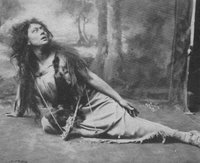
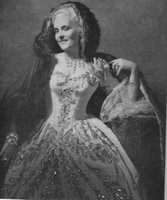
What was odd about all of this was that I had no idea what opera actually sounded like. My mother told me it was people singing high and loud in a language no one could understand. But what this actually sounded like I had no idea. All I knew was that they acted out these stories that had completely captivated my imagination. I was desperate to know all there was to know about opera.
My father had a few records from the time before he and my mother were married, but we had no record player, so classical music in general was a relative mystery to me. And yet the lure of this unknown Thing was so great that I could not forget about it and move on to something else. I was hungering for food that I had never tasted.
Finally at my fourth Christmas Santa Claus brought me a record player (we were disabused of the notion of Santa Claus very early on, but at this point I was none the wiser). The record player looked like nothing so much as a suitcase, which is what they told me it was when my grandfather brought it out of the back room after everyone else had opened all their presents. They couldn’t fool me, though, because the little metal sticker on the front bore the Columbia Records emblem (my father’s records were all from the Columbia Record Club, so I recognized the trademark immediately).

Finally I was able to listen to all those records that had been lying in the basement gathering dust. One of my favorites was
Aida: Opera for Orchestra with André Kostelanetz and His Orchestra. So nice to have all the tunes without those pesky loud voices entering into the aural picture.
My life was now filled with music at nearly every waking moment, from the
Firebird Suite to
Scheherazade (which I would proudly and perfect spell for anyone who would listen), the Tchaikovsky Fourth (which I dubbed "The Lady Picking The Flowers" because of the picture on the cover) to the Dvorák
New World Symphony to the
Grand Canyon Suite to Bernstein’s
Fancy Free and Milhaud’s
Création du Monde. Each favorite piece of music had a specific narrative associated with it (for wasn’t all music like opera, in that it told a story?)
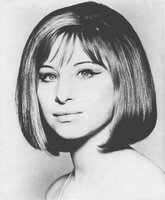
My father had a few jazz albums as well, but my favorite pop albums were
Saturday Night Mood, a collection of twelve fox trots by "your favorite dance bands", the Norman Luboff Choir singing
Easy to Remember and other nostalgic gems, and, especially,
The Second Barbra Streisand Album, which belonged to my father’s sister Judy. It took some doing to get my parents to allow this record into the house; not only was the singer in question a "conceited" "hook-nosed Jew" but, worst of all, she had campaigned for JFK, who, though dead, was still The Enemy. I couldn’t be bothered with any of these particulars; I just loved "Any Place I Hang My Hat Is Home", "Down With Love" and "When the Sun Comes Out" (shit, I had good taste even then!) I would dance around my bedroom holding the record cover (with that famous pageboy photo) in front of me, pretending that I was dancing with Miss Streisand herself. At this moment in my life, I wanted two things: to work in a record store and to meet Barbra Streisand (neither actually transpired, however).
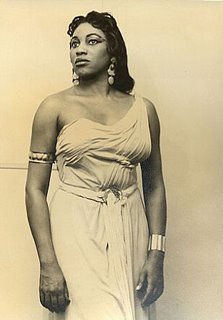
All this time and I still did not know what opera sounded like, until one Saturday afternoon my father called me up into his study where he was studying his sermon. He always listened to classical music on the radio while doing his work, and he happened upon a live Met broadcast of
Aida with Leontyne Price (pronounced "Lee-ON-teen"). Imagine, my first exposure to actual sung opera was Leontyne singing "O patria mia" in her creamy prime. It was a sound that I could never have imagined in the farthest reaches of my mind. All this talk we always heard of angels and I was finally hearing what one sounded like. I was bewitched. Somehow against all odds, music had found me, and has been at the center of my life every single day since.
Labels: aida, autobiography, barbra streisand, childhood, ezio pinza, fremstad, lehmann, leontyne price, music, novotna, opera, sayao, sophia loren, tebaldi
